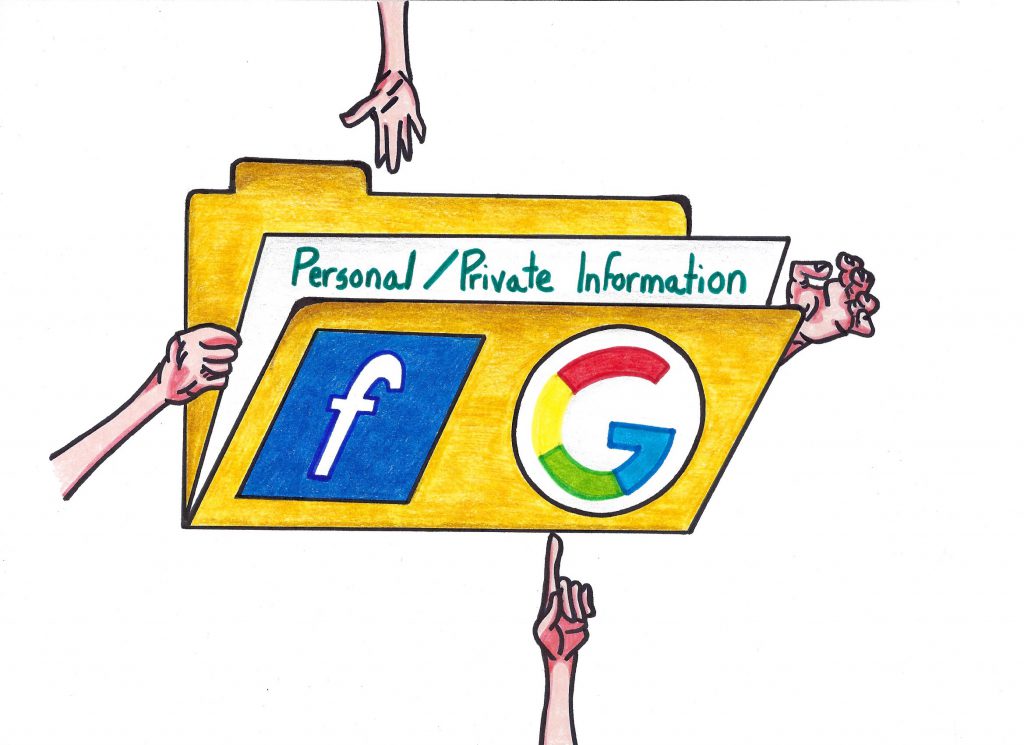The Secret Roots Of Advertisements
Like any student, I was navigating through different university websites and like any expert of procrastination, I also decided to open Facebook. As I navigated through my Facebook feed, I saw an ad about the university I was interested in.
“This is pure destiny knocking on my door,” I said to myself. Poor me. I had no idea that it was not destiny or God’s faith trying to show me where I should go; it was just my information being sold by Google and Facebook to ad companies.
Information like name, email address, credit card information, telephone number, websites visited, words searched, how you interact with other websites and links, how long you stayed on a website and more is saved on a little folder inside of a virtual cabinet drawer, similar to a scene from Bruce Almighty. In the film, God opens a drawer named Bruce Almighty that kept information like words he said during his lifetime, things he thought and everything bad he said about God.
The market of shared information can generate a ridiculous amount of money for big companies like Google, Facebook, Snapchat, Yahoo, YouTube and Apple. A perfect example is a Snapchat feature released in June called Snap Map that when activated shows the location of the user and their friends, as well as events nearby.
Some may think that the solution is using a browser known as Epic. Epic promises to not save any type of information inserted by the user and can even change their Internet Protocol number if asked to do so. An IP number or address is an identifier assigned to every computer or electronic device and IP network. Since each IP number of a network and electronic device is unique, it’s possible to track down a person’s location.
What web navigators do not know is that Epic used to work with a company known as Blucora—a partner of Google. Blucora’s main goal, along with Epic, was to masquerade a part of the user’s IP number. Although users thought that they could not be tracked down because part of their IP number was changed, Google still knew what they were looking up and accessing since Blucora favored Google as a search engine. Which meant that even though no information was being sent to ad companies, they kept track of everything searched by the user. For example, if the information was considered dangerous it could be sold to a government company.
We think that only using an incognito tab will save us from being watched by third parties, but it just makes us more vulnerable to it. Today, it is impossible to disconnect or hide ourselves from the online world. Someday, everything you search for can and will be used against you.




